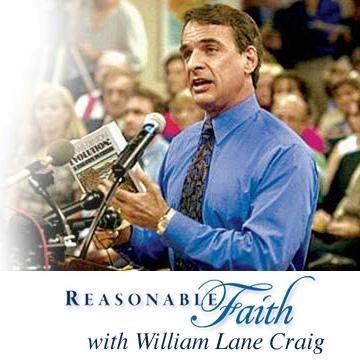Question of the Week #919: ChatGPT Strikes Out Big Time!
Reasonable Faith Podcast
William Lane Craig
4.7 • 1.5K Ratings
🗓️ 26 December 2024
⏱️ 7 minutes
🧾️ Download transcript
Summary
Transcript
Click on a timestamp to play from that location
| 0:00.0 | I need some answers for these fallacies that God is the first cause. |
| 0:18.3 | I just ran your argument through ChatGPT to check for the logical fallacies |
| 0:22.4 | you've committed and you've actually committed six of them. Here's the list. The argument that a |
| 0:28.4 | God is the first cause of the universe and that the universe cannot be eternal involves certain |
| 0:34.5 | logical fallacies. Special pleading. |
| 0:38.7 | This fallacy occurs if one assumes the universe requires a cause but claims that God does not. |
| 0:45.1 | If everything must have a cause, the same rule would logically apply to God. |
| 0:50.5 | Begging the question. |
| 0:52.2 | This fallacy arises if someone assumes the conclusion that a God exists |
| 0:56.1 | to prove that the universe was created by that God. The argument presumes what it seeks to prove, |
| 1:02.8 | i.e. the existence of a God as the first cause. Argument from ignorance. Argumentum, add |
| 1:10.7 | ignorantium. This occurs when a lack of scientific or |
| 1:14.7 | naturalistic explanations for the universe's origins is used to conclude that a god must be the cause. |
| 1:21.7 | Just because science doesn't have a complete answer does not mean a supernatural answer is valid by default. |
| 1:29.0 | Composition fallacy. This fallacy occurs if one assumes that because things within the |
| 1:34.2 | universe are caused, the universe as a whole must also have a cause. Properties of individual parts |
| 1:41.0 | do not always apply to the whole. God of the gaps. This fallacy involves invoking a |
| 1:48.4 | god to fill gaps in human understanding. It relies on attributing unknown or unexplained phenomena |
| 1:54.9 | to divine intervention, instead of accepting that they are unknown. Non sequitur. |
| 2:02.6 | If the argument jumps from the universe needs a cause to, |
| 2:06.6 | therefore a God is that cause, it's a non sequitur. |
| 2:10.6 | The conclusion, a God exists, does not necessarily follow from the premises about causality. |
... |
Transcript will be available on the free plan in -96 days. Upgrade to see the full transcript now.
Disclaimer: The podcast and artwork embedded on this page are from William Lane Craig, and are the property of its owner and not affiliated with or endorsed by Tapesearch.
Generated transcripts are the property of William Lane Craig and are distributed freely under the Fair Use doctrine. Transcripts generated by Tapesearch are not guaranteed to be accurate.
Copyright © Tapesearch 2025.

